A universal language that everyone can understand is great music, pop icon and radio personality Kim Wilde says about her new and worldwide syndicated 80s music radio show.
Radio stations that want to own the eighties music image, can now sign up for The Kim Wilde 80s Show. After speaking with co-creator Francis Currie, we have had the pleasure to interview Kim about her immense passion for music, and great heart for radio. “I love the direct contact with the listener. Emotion and something invisible passes through the air.”
“Radio was king,
and it still is for me today”
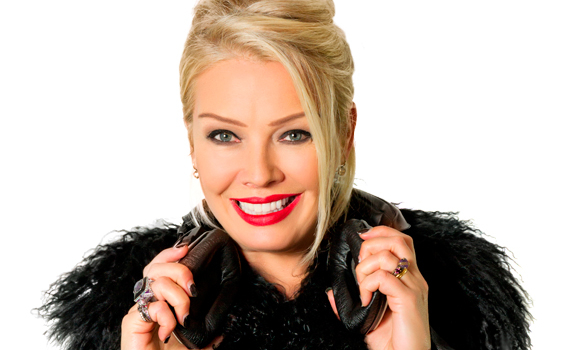
Radio has always been a source of inspiration and support for Kim Wilde’s career (photo: Kim Wilde management)
Maintain music & talk ratio
“Sitting in the back of my dad’s car, on our way home from Blackpool in the North of England, listening to The Beatles with Penny Lane.” That’s the earliest radio memory of Kim Wilde (Kim Smith) from the early 1960s. As a teenager, she frequently tuned in to BBC Radio 1, and Capital Radio (now Capital FM) which back then was a local station in London. “I liked Steve Wright from Radio 1 and Chris Tarrant from Capital – both funny guys. They also seemed to know when to shut up and play a great record!”
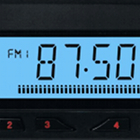 Discover inspirational radio worldwide
Discover inspirational radio worldwide
Which radio stations do you appreciate these days?
“Whenever I’m traveling with my band, we always have the radio on in the tour bus. We listen to many music stations to hear what they’re playing. Here in the UK, I enjoy listening to Magic 105.4 where I have a Sunday show, to BBC Radio 1, BBC Radio 2 and BBC Radio 6 Music, and to 106 JACK fm; my local radio station in Hertfordshire.”
Support new artists & songs
Which role did radio play in your personal development as a singer-songwriter?
“Radio had a huge influence on my musical tastes, and inspired me from a very early age – as it still does, whether I’m listening to it or presenting on it – and radio broke my first hit record, Kids in America.” Wilde remembers the first time she heard that song (written & produced by her father Marty and brother Ricky) on the air. “I was in London in a car, probably off to do some radio promotion! Radio 1 was the most important station to break new records nationally. They loved it. My heart danced! The relatively short-lived rise of MTV was still in its infancy. Radio was king, and it still is for me today.”
“It’s not a process I would put
my complete faith in”
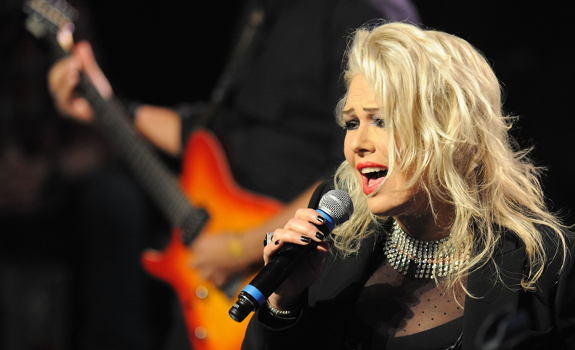
Kim Wilde’s impression is that radio’s music research not only has positive sides (photo: Kim Wilde management)
Develop innovative programming & distribution
In this time of YouTube and Spotify, do you think that radio is still relevant for artists and labels to promote (and for listeners to discover) new music?
“Yes, I do. Of course there are countless new conduits for music, but in my view, radio has already taken on all music TV – and won. The Internet will continue to throw up opportunities for the presentation of new music, but as long as radio will continue to embrace new technologies, then the medium will always play an important part.” Her two teenage kids still like radio as well: “They listen to whatever is on in our house or in the car. Rose, who is 14, will happily listen to whatever I put on, but 16-year-old Harry will only let me keep the radio on if its playing Rock!”
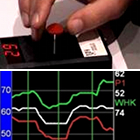 Balance radio science & art
Balance radio science & art
What do you, as an artist, think of radio’s programming science where an auditorium’s response to a 10-second hook decides whether that song will be played or not?
“Good question. I would be fascinated to sit in and watch the process. Often a song reveals itself very quickly in the world of Pop, but too many gems could slip the net. It’s not a process I would put my complete faith in.”
Do what comes naturally
You are contracted to Magic 105.4 for a weekend show called Kim Wilde’s Secret Songs. How did you end up in radio?
“I was given a 6-month contract to try out a request show, which was then called Secret Songs. That was over 5 years ago! It’s now called Kim Wilde’s Secret Songs. I have always loved doing radio promotions as an artist, so I thought I’d give it a go on the other side of the track.” Wilde has presented TV shows about gardening, her other huge passion, but her favorite medium is radio. “I don’t have to worry about my hair and make up! I prefer the relaxed and spontaneous approach to radio that television seldom achieves.”
“I have heard supposed ‘real’ radio presenters
who make me want to turn off straight away”
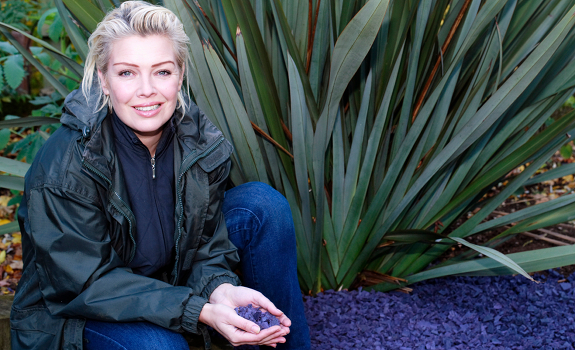
Kim Wilde’s impression is that heritage radio roots don’t always guarantee great on-air output (photo: Kevin Royle)
Appreciate feedback, ignore criticism
What do think of the criticism from some radio professionals who say that celebrity deejays and TV stars are “not real radio people”?
“There are those who said that to me when I became involved in horticulture [gardening is another passion of Kim Wilde, about which she also presented a TV show, TG]. A small cynical contingent couldn’t get their heads around an 80s icon with a spade in her hand! I have heard supposed ‘real’ radio presenters who make me want to turn off straight away. Anyone with a music passion certainly belongs on music radio; ‘real’ radio or not.”
 Rely on your team
Rely on your team
In your opinion, what makes someone a great radio presenter? And how do you develop your own skills in that regard?
“I think that your tone of voice is extremely important – just like saying things that make sense! I’m very lucky to have switched-on producers at both Magic 105.4 and my new program, The Kim Wilde 80s Show. They’ll make sure that I don’t ramble on too much.”
Take away language barriers
It’s a syndicated show for an international audience. How do you try to appeal to a variety of cultures and languages?
“Love for the music is the most important thing. I really feel that people always recognize that, regardless of the language. I love sharing my passion for the decade when I was going out to buy vinyl records and later CDs. Of course we play a lot of music in the show, so the songs do quite a lot of the talking for me! I try to keep links fairly short and use simple words so that everyone can understand what I am saying, even if they don’t speak English as a first language. I also really enjoy having a little go at speaking the different languages in some of the customized links.” Listen to a short impression of The Kim Wilde 80s Show:
[audio:http://www.radioiloveit.com/wp-content/uploads/the-kim-wilde-80s-show-demo-01.mp3|titles=The Kim Wilde 80s Show Demo]
“In retrospect,
I think we were very lucky”
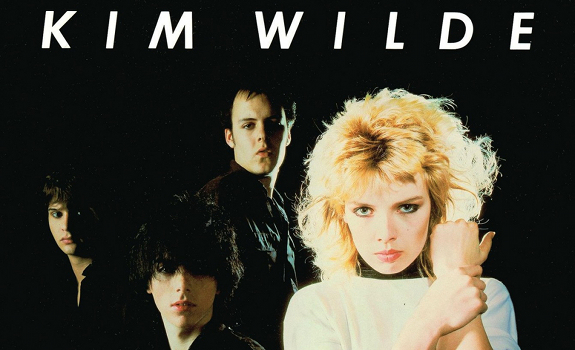
Kim Wilde feels like the 80s were a decade of music variety & creativity (photo: Gered Mankowitz / John Pasche)
Share personal life stories
Are you personally involved in the production of the show, and what do you do?
“I really like to be involved in everything I do, and I’m proud of The Kim Wilde 80s Show. We often swap things around and make a few changes when we are in the studio, and I always try to bring some own experience to it. For example, stories about my adventures with artists I’ve have worked and recorded with over my 30 years in the music industry – and industry of which I am really proud.”
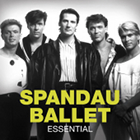 Create flow through variety
Create flow through variety
How do you explain that 80s songs are still so popular, and seem more memorable than music from the 90s?
“It was very fertile decade for Pop, and within this heading it varied stylistically too; from Rock to Soul, from Punk to New Wave. Of course you don’t realize it at the time; you just know you love what you’re hearing – but in retrospect, I think we were very lucky.”
Play meaningful pop music
What is your favorite 80s song of all time, and why?
“Spandau Ballet’s To Cut a Long Story Short, their first hit in 1980. A synth pop classic that has influenced many other artists – including Ricky, my brother, co-writer & producer. New Order released the brilliant Blue Monday three years later; it’s interesting to compare the two.”
“Communication is not
through words alone”
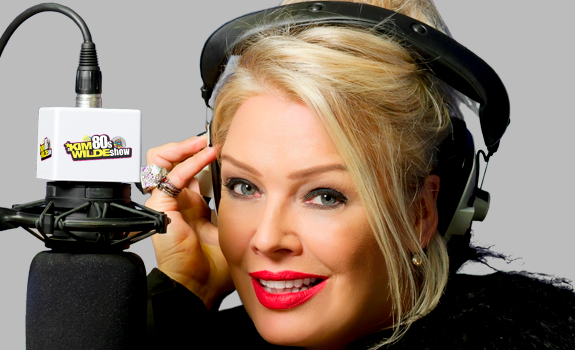
Kim Wilde appreciates radio’s personal and emotional connection with the audience (photo: Kim Wilde management)
Use emotion to connect
What is the magic of radio for you?
“I love radio, and I love the direct contact with the listener. Communication is not through words alone; emotion and something invisible passes through the air. The chance of something special happening is never far away!”
The show is now available on a market-exclusive basis through the site of The Kim Wilde 80s Show.
[ Read our interview with co-creator Francis Currie ]

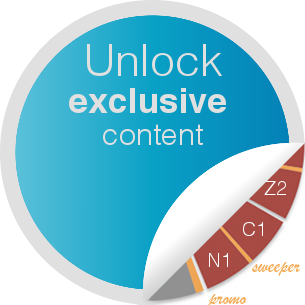


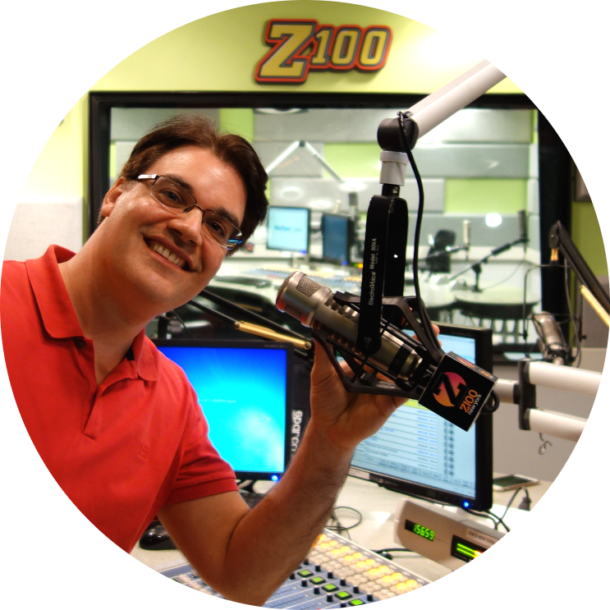
Add Your Comment